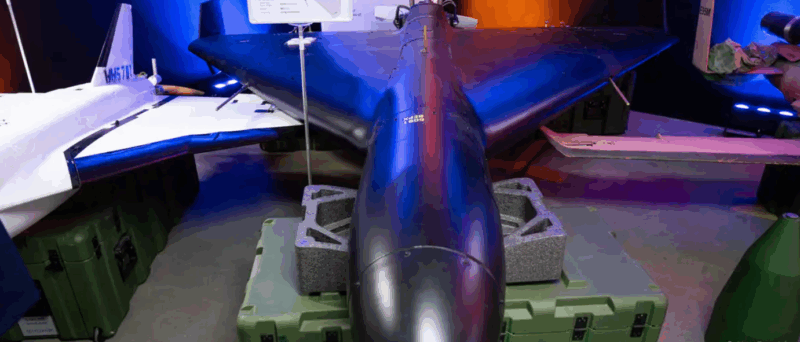They hoped for a better career but ended up in Russia’s war factories. A new study reveals how young women, mainly from Africa, have been being exploited. Some of those affected have shared their stories with DW.

“I like Russia, its language and culture,” Aminata, 20, told DW. She wants to leave her home country of Sierra Leone in a few weeks to pursue an apprenticeship around 7,000 kilometers (4,300 miles) away in Russia.
Her travel costs will be covered by the Alabuga Start program, named after an industrial area in southwestern Russia, where dormitories are provided for program participants.
Alabuga Start offers female applicants from poorer countries the prospect of a well-paid career.
Shattered dreams
For most of them, the dream is shattered shortly after their arrival in the Alabuga Special Economic Zone (SEZ), a large industrial area in the Russian region of Tatarstan.
According to a report published in May by the Global Initiative against Transnational Organized Crime, many new arrivals find themselves assembling cheap drones under poor conditions.
DW contacted several program participants — most of whom do not want to talk about their experiences on the record for fear of reprisals.
Chinara, a young Nigerian woman who took part in the Alabuga program and left Russia disappointed, was willing to give an interview via social media messaging services.
“They turned us into hard laborers with low wages,” she wrote in the chat with DW.
“At first we felt good because when we applied, we were offered areas such as logistics, service and catering, crane operators,” wrote Chinara, whose name has been changed to protect her identity.
She explained that at first it seemed like a rare opportunity for African girls to gain a foothold in these professions. “But when we got here, they changed everything and gave excuses.”
Some said they were assigned to a drone assembly factory, others supervised drone production, and the rest worked as cleaners.
The young women were exposed to “highly dangerous and life-threatening chemicals,” Chinara claimed, adding that “Even the Russians themselves do not work there for long because it is a very dangerous place.”
A center of the war economy
The Alabuga SEZ is a major production hub for Geran-2 drones, which are based on the Iranian-made Shahed 136 and play a key role in attacks on Ukraine.
The SEZ was established in 2006 to attract companies and investments to Tatarstan.
After Russia’s invasion of Ukraine in 2022, the facility expanded rapidly and parts were converted to military production by adding new buildings or renovating them, as satellite images show.
Labor shortages are repeatedly reported from war-torn Russia. At the same time, migrant workers from the Global South are apparently becoming more of a focus for recruiters.
According to figures from the Single Interdepartmental Information and Statistical System (SIISS), an official Russian government database, more than 111,000 African workers arrived in Russia in 2024 — a 50% increase compared to the first year of the war in 2022.
The strongest growth was recorded by Cameroonians, with many others coming from Nigeria, Burkina Faso, Togo, the Central African Republic and Gambia.
Almost all of these countries appear in the GI study in connection with Alabuga Start. Initially, according to the study, mainly African women between 18 and 22 were recruited.
The program has since been expanded to other developing countries in Asia and Latin America, and several former Soviet republics.
The authors of the study analyzed data and conducted around 60 interviews between December 2024 and March 2025.
Co-author Julia Stanyard told DW that girls as young as 16 were also hired for drone production by the Alabuga Polytech training facility, which is located on the production site.
“The working conditions are exploitative, the young women spoke of working long hours and being supervised by Alabuga management. They work with chemicals that pose a risk to their health,” said Stanyard.
‘Our daughter talks about forced labor’
“The program seems to resemble a form of fraudulent exploitation,” Stanyard told DW. “They are not told what they will produce when they are recruited. Many young girls are trapped in Alabuga and leaving the country seems impossible.”
In Zimbabwe, parents are worried about their children who applied online and set off for Russia with a plane ticket paid for by Alabuga.
The mother of a girl from rural northern Zimbabwe complained about her daughter’s suffering.
“She wanted to further her technical education. Now she told us about forced labor, she is hardly allowed to use her phone and is under surveillance. She has not received the $1,500 (€1,300) she was promised,” she told DW. “Now I can’t even get her back.”
A father of another girl who left Zimbabwe for the Alabuga SEZ told DW it was a nightmare that a supposedly credible training program had turned into “a death trap.”
And a mother in the Zimbabwean capital, Harare, told DW about her 20-year-old daughter in Alabuga, who was also supposed to undergo technical training.
“But she is doing something completely different. We can hardly speak to her, her passport has been withheld so that she can’t run away,” the woman told DW.
Source : https://www.dw.com/en/exploitation-in-russia-building-drones-instead-of-training/a-72881545








